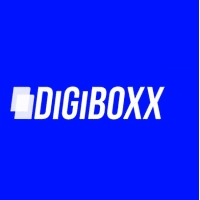List of 20 Best File Storage Software
StayPrivate solution for secure email communication. With its easy set-up and compatibility with all email servers, StayPrivate ensures complete privacy for your important messages. In just five minutes, you can configure StayPrivate to encrypt all y...Read More StayPrivate
Carbonite is a backup solution for all your crucial files. Designed to work effortlessly in the background, you can trust Carbonite to keep your data safe at all times. Say goodbye to the fear of losing valuable work, as Carbonite continuously safegu...Read More Carbonite
Qumulo solution for managing unstructured data across hybrid environments. With its robust capabilities such as centralized monitoring, cost-effective scalability, and simplified administration, Qumulo is the go-to platform for organizations in need...Read More Qumulo
Scality RING - a leading storage solution designed for enterprises seeking reliable data management, enhanced security, and high availability. Its advanced capabilities enable efficient data protection, flexible deployment options, and cost-effective...Read More Scality RING
Tonido is a, self-hosted solution for managing and accessing your data from anywhere. You have complete control over your files and can easily share them with anyone through a web browser. It comes with features such as file organization, backup, sea...Read More Tonido
Nasuni provides a leading cloud storage solution, offering advanced features like data synchronization, encryption, file sharing, and version control. With a 24/7 helpline, you can rely on efficient support for any concerns. Enhance your storage capa...Read More Nasuni
xiRAID, a software RAID engine that incorporates extensive research, advanced data protection algorithms, and in-depth knowledge of CPU operations. Seamlessly compatible with NVMe® and NVMe-oF™ devices, xiRAID is solution for achieving light...Read More xiRAID
Internxt is a secure and privacy-focused cloud storage solution designed for businesses, teams, and individuals. Our platform is compatible with all devices, giving you convenient access to your files at any time. We prioritize your data privacy and...Read More Internxt
ElephantDrive is a reliable cloud backup solution that offers strong encryption and automatic backups for your important data and memories. With easy access from any device, you can trust that your files are secure and always available when you need...Read More ElephantDrive
DaFile is a file sharing platform that offers unmatched affordability and convenience. With no limitations on file sizes, speed, or bandwidth, DaFile is the go-to choice for all your file transfer requirements. Say goodbye to monthly subscriptions, a...Read More DaFile
Azure File Storage is solution that utilizes the popular SMB protocol for efficient file management. Its user-friendly interface allows for seamless creation and management of Azure Storages and files, with the added benefits of high durability, seam...Read More Azure File Storage
Digiboxx, the pioneering Swadesi Digital Asset Management platform in India. Launched in 2020, this advanced tool offers a secure and reliable solution for storing and sharing files, videos, photos, and documents. Utilize its efficient features to ef...Read More Digiboxx
Seafile is a powerful, open-source solution for effortlessly syncing and sharing files across all your devices. With its advanced SeaDoc editor, collaboration becomes seamless and efficient. Join the millions of trusted users who rely on Seafile for...Read More Seafile
Media Shuttle, solution that provides global teams with the tools they need to effortlessly access, share, and transfer large media files with unmatched speed and top-of-the-line security features. Streamline your media workflows and collaborate seam...Read More Media Shuttle
ExaVault is solution for streamlined business processes through its secure Cloud FTP platform. With a simple setup, users can create their own FTP server in a matter of seconds, complete with a user-friendly web interface and compatibility with direc...Read More ExaVault
DriveHQ is a cloud solution for efficient file storage, backup, and sharing. With its user-friendly features such as drive mapping, FTP hosting, and email services, DriveHQ caters to the needs of both individuals and businesses. Advanced security mea...Read More DriveHQ
At eFileCabinet, we offer a complete range of office management solutions and unparalleled support. With our robust software, you can enhance your business operations by easily capturing, storing, managing, sharing, and securing both physical and dig...Read More eFileCabinet
Doccept is a document management software that empowers businesses to improve efficiency and protect important documents. With its multi-user capabilities, Doccept promotes seamless teamwork, ensuring easy access and organization of essential documen...Read More Doccept
DynaFile solution for your HR document management needs. With a proven track record of 20+ years, it streamlines processes, enhances security, and boosts productivity through automated features. Seamlessly integrate with e-signature tools and cloud s...Read More DynaFile
Zadara - the premier managed cloud service provider. Our platform offers flexible options for computing, networking, and storage, ideal for on-premises, hybrid, and multi-cloud environments. With round-the-clock support and centralized management, Za...Read More Zadara
Learn More About File Storage Software
- What Is File Storage Software?
- What Are The Recent Trends In File Storage Software?
- Benefits Of Using File Storage Software
- Important Factors To Consider While Purchasing File Storage Software?
- What Are The Key Features To Look For In File Storage Software?
- Why Do Businesses Need File Storage Software?
- How Much Time Is Required To Implement File Storage Software?
- What Is The Level Of Customization Available In File Storage Software?
- Which Industries Can Benefit The Most From File Storage Software?
- Conclusion
What Is File Storage Software?
A strong tool for managing, organizing, and storing digital files is file storage software. This covers any kind of data, including pictures, movies, and documents. Effective file storage software is now more important than ever due to the growing volume of data that both individuals and corporations generate and keep. Fundamentally, the purpose of file storage software is to offer a centralized location for file access and storage.
This improves efficiency and saves time by doing away with the requirement for physical storage devices like USB drives and external hard drives. The program is a useful tool for teams and organizations since it makes it simple for users to collaborate and share information. The features and capacities of file storage software vary based on the particular program or service.
These may consist of permission-based access, version control, search capabilities, and automatic backup and synchronization. Advanced security features are also included in certain systems to guard against unwanted access to private information. The ability of file storage software to grow with a user's or business's expanding needs is one of its main advantages. Numerous systems allow customers to upgrade or reduce their storage plans as needed since they are adaptable.
It is a practical choice for remote work or on-the-go access because users may view their files from any device with an internet connection. Storage capacity, security features, interoperability with other programs and systems, and price are all essential considerations when looking at and buying file storage software. Microsoft OneDrive, Dropbox, and Google Drive are a few well-liked file storage software choices. Before choosing, it is advised to carefully weigh your options and test them out to make sure the software suits your demands.
What Are The Recent Trends In File Storage Software?
File storage software is becoming a necessary tool for both consumers and modern enterprises. File storage software has changed to satisfy market expectations as a result of the increasing volume of digital information being created and the requirement for safe and orderly storage. The trends in file storage software are evolving along with technology. We will go over current file storage software trends in this buyer's guide, which buyers should take into account before making a purchase.
1. Solutions For Cloud-Based Storage: The move to cloud-based solutions is one of the biggest developments in file storage software. Cloud storage is now a popular choice for many enterprises due to the growing popularity of remote work and the requirement for flexible file access. In addition to being easily accessible from anywhere, it is also more affordable and scalable than conventional on-premise storage options.
2. Combining Collaboration Tools: The incorporation of collaborative functions into file storage software is another trend. File storage software has developed to incorporate functions like task assignment, file sharing, and real-time document editing as companies depend more and more on team collaboration for communication and project management. Because teams can collaborate on files with ease thanks to this integration, workflow is streamlined and productivity is raised.
3. Automation And Insights Driven By AI: The usage of artificial intelligence (AI) in file storage software has also increased in order to automate procedures and offer insights. Given the vast volumes of data being saved, analytics driven by AI can offer insightful information to support organizations in making data-driven decisions. Users can also save time and effort by utilizing automation capabilities like data backup and file management.
4. Sophisticated Security Protocols: File storage software suppliers are increasingly providing sophisticated security features as a result of the growing concern over data security. This covers multi-factor authentication, access control, data backup, and end-to-end encryption. These security measures are essential for safeguarding sensitive data and guaranteeing adherence to privacy laws in light of the growing number of cyberthreats.
5. Applications: That Are Mobile-Friendly The need for mobile-friendly file storage software has grown in today's mobile-first society. These days, a lot of providers have mobile-friendly apps that let users access and manage their files while they're on the road. Businesses that employ remote workers or have employees that travel frequently would particularly benefit from this trend.
Benefits Of Using File Storage Software
For companies of all sizes, file storage software is an essential tool since it provides a host of advantages that can improve security, efficiency, and organization. The main advantages of utilizing file storage software and its potential effects on your company's operations will be covered in this buyer's guide.
1. Improved File Structure: Systematically organizing and storing digital files is the main goal of file storage software. Features like folders, subfolders, and tags make it simpler to find and retrieve particular files, which saves a significant amount of time and work. Better file organization results from lowering the possibility of files being misplaced or lost.
2. Improved Cooperation And Availability: Several people can access and work on the same file at once while using file storage software. By doing away with the requirement to exchange files, this encourages teamwork and lowers the possibility of version disputes. Furthermore, a lot of file storage software is accessible from any device and location, which is useful for teams that work remotely or travel.
3. Data Recovery And Backup: For any business, losing crucial files as a result of system failures or human error may be a nightmare. File storage software eliminates this concern by offering choices for automated data backup and recovery. You may quickly recover the files from the cloud backup in the event of data loss, guaranteeing company continuity.
4. Privacy And Security: Strong security features like encryption, user access limits, and data protection mechanisms are frequently included in file storage software. This gives firms handling sensitive data piece of mind by guaranteeing that files are shielded from illegal access and data breaches.
5. Space And Cost Savings: Physical storage devices like filing cabinets and external hard drives are no longer necessary when file storage software is used. This lowers the expenses related to buying and maintaining these storage solutions in addition to saving actual space. Furthermore, a lot of file storage software has tiers of pricing, which makes it accessible to companies of all sizes.
Important Factors To Consider While Purchasing File Storage Software?
To make sure you are making an informed choice, there are a number of crucial variables to take into account when buying file storage software. The following are important factors to consider when comparing various file storage options:
1. Storage Capacity: The software's storage capacity is the first and most important consideration. All of your data and papers should be able to be stored by the software without any restrictions. Be sure to evaluate your present storage requirements and account for any expansions.
2. Storage Type: There exist various file storage alternatives, including local storage, cloud storage, and hybrid storage. Each has a unique set of benefits and limitations. Choose the storage option that best suits your needs by taking your organization's needs into account.
3. Accessibility: This component describes how simple it is to access the files that are stored within the program. While some solutions only permit access from the local network, others provide remote access. Think about choosing a solution that provides remote accessibility if you need to access your data from several different devices or locations.
4. Security: You must safeguard the important data in your files and documents. As a result, selecting file storage software with strong security features like encryption, access controls, and frequent data backups is essential. Additionally, see if the program complies with any regulatory regulations, including GDPR or HIPAA.
5. Collaboration Features: Selecting a file storage program that facilitates simple file sharing and collaboration is essential if you work in a team. To promote improved teamwork, look for features like version control, commenting, and real-time updates.
6. Integration Options: Your current tools and systems should be able to easily integrate with the file storage software. You'll save time and effort while moving information and data between platforms thanks to this.
7. User-Friendliness: The program should have an intuitive user interface that is simple to use and comprehend. This is particularly crucial if several team members will be utilizing the software or if you are not extremely tech-savvy.
8. Customer Service: In the event that you run into any problems with the program, it is crucial to select a vendor who provides dependable and prompt customer service. You can choose file storage software that best suits your company's requirements and expedites your data management procedures by taking these crucial aspects into account.
What Are The Key Features To Look For In File Storage Software?
There are a few important factors to take into account while selecting the best file storage program. These characteristics can have a big impact on the software's usability, security, and functionality. To assist you in making an informed choice, look for these crucial characteristics as you sort through the different possibilities on the market:
1. Cloud Storage Capabilities: One important feature that makes it simple to access and share files from any location or device is the ability to save files in the cloud. Seek solutions that provide a dependable and safe cloud storage option.
2. File Sharing And Syncing: This feature makes it simple for users to exchange files with others and sync files across several devices. To manage who may access the shared data, look for software that provides sophisticated security features and flexible sharing choices.
3. File Organization And Search: Effective file management requires the capacity to arrange files into directories and conduct quick searches for certain files. Seek for software with strong search capabilities and modifiable folder structures.
4. File Backup And Recovery: Files can become corrupted or lost due to accidents. Features for backup and recovery are crucial for protecting your files. Seek out software that provides simple file restoration and automatic backups.
5. Collaboration Tools: Collaboration elements are essential while working in a group. Choose software with capabilities like version control to keep track of changes and that lets several people work on the same file at once.
6. Security Features: To guard your files from theft or illegal access, file storage software should have strong security features. Seek solutions with features like multi-factor authentication and encryption.
7. Integration With Other Tools: Take into account software that may be integrated with other apps and tools that you use in your workflow, including email clients or project management software. This can increase productivity and simplify your workflow.
Why Do Businesses Need File Storage Software?
Businesses are continuously producing and amassing a huge volume of electronic files, including papers, photos, videos, and more, in the current digital era. These files are essential for both preserving crucial information for later use and for daily activities. However, any organization may find it difficult to adequately manage and organize these files, especially when the amount of data keeps growing.
This is the point at which file storage software becomes a vital corporate tool. Businesses may safely store and manage their electronic information in one place with file storage software, which facilitates access, organization, and sharing. This increases productivity while simultaneously ensuring data security and preventing data loss.
Additionally, file storage software provides a number of features including version control, data synchronization, and automatic backup, guaranteeing that companies have a dependable and effective backup system in place. This reduces the possibility of losing crucial data since companies can quickly recover an earlier version of a file, even if it is inadvertently erased or corrupted.
But that's not all; companies may also limit who can access which files by setting access rights using file storage software. Because it guarantees that only authorized persons may access important files, this is especially helpful for larger firms with numerous departments and teams.
How Much Time Is Required To Implement File Storage Software?
The size and complexity of your storage requirements, the IT architecture of your business, and the software type you select are just a few of the variables that affect how long it takes to implement file storage software. However, the usual time to fully integrate and set up file storage software for your company might range from a few days to several weeks.
First of all, it's critical to realize that putting file storage software into practice entails more than simply setting it up on your computer. It also entails connecting the software with your current systems, transferring and organizing all of your current files onto the new program, and configuring user permissions and access controls.
Assessing your storage needs and selecting a software solution that meets your demands is the first stage in the deployment process. This may entail investigating several choices, evaluating their attributes, and contrasting costs. Depending on how sophisticated your storage requirements are and how many software options you have, this could take a few days or even a few weeks.
Moving your files to the new system is the next step after choosing a program. This procedure can take a long time, particularly if you have a lot of data. This can take several hours to many days, depending on the volume of data and network speed. Setting up user rights and access controls comes next after the files have been moved.
Creating user accounts and deciding who can access certain files or folders are part of this process. Depending on how many people there are and how complicated the permissions are, this could take several hours or a whole day. Lastly, you must make sure the file storage software is working correctly by integrating it with your current systems.
Several days may pass throughout this process, particularly if there are any compatibility problems that need to be fixed. In conclusion, based on your unique requirements and the software's complexity, the time needed to install file storage software might vary from a few days to several weeks. A successful transition to the new system depends on careful planning and investigation of the implementation process.
What Is The Level Of Customization Available In File Storage Software?
Customization is a crucial consideration when it comes to file storage software. The usefulness and efficiency of the file storage system in place at your company can be significantly impacted by the degree of customization that is available. High levels of customisation in file storage software enable more flexibility and solutions that are specifically designed to meet your needs.
The degree of customisation offered by various software alternatives varies. While some offer significant customization choices for organization, labeling, and access controls, others might have pre-set templates and few options for modifying folders and file names. To classify and arrange your files, you can construct custom folder structures, tags, and metadata using a highly configurable file storage program.
This can increase productivity and save time by making it simpler to find and retrieve particular files. Furthermore, the flexibility to alter permissions and access controls guarantees that only authorized individuals can access private or sensitive information. For businesses with stringent data privacy policies, this might be very important. Additionally, certain file storage programs could provide design and user interface modification choices.
This can facilitate a more efficient workflow by making navigation easier to understand and enhancing the user experience overall. High levels of customization enable a more specialized and effective file storage system, which is why purchasers find it important. Make sure to evaluate the degree of customisation offered and identify the features that are most crucial for the requirements of your company when investigating various software solutions.
Which Industries Can Benefit The Most From File Storage Software?
Because it provides a centralized, secure method of managing, storing, and accessing critical documents, files, and data, file storage software is an essential tool for companies of all sizes. But certain sectors stand to gain even more from the use of dependable information storage software. We will examine the leading industries that stand to gain the most from the use of file storage software in this buyer's guide.
1. Healthcare Sector: The healthcare sector handles private and sensitive data, including insurance information, medical reports, and patient records. Software for file storage offers a structured and safe method for managing, sharing, and storing this important data while guaranteeing adherence to stringent legal requirements. File storage software gives healthcare workers peace of mind and simplifies their document management process with features like version control, data encryption, and access controls.
2. Legal Industry: Contracts, case files, evidence, and court transcripts are just a few of the many papers that law firms and legal experts handle. They need a mechanism to quickly search for and retrieve particular files when needed, in addition to a safe place to store these papers. Legal professionals can access their papers from anywhere at any time thanks to file storage software's sophisticated search features and cloud-based access. Additionally, file storage software provides version control, which reduces the possibility of using inaccurate or out-of-date information by guaranteeing that the most recent version of a document is always accessible.
3. Financial Industry: Sensitive data, including as client information, financial records, and company information, are handled by banking, accounting, and other financial organizations. To guarantee that this data is shielded from online threats and data breaches, file storage software offers the essential security features, including data encryption and access controls. Financial institutions can also feel secure knowing that their data is always backed up in case of any unanticipated events thanks to automatic backup and disaster recovery options.
4. Marketing And Advertising Sector: This sector frequently works together on campaigns and projects, necessitating effective file sharing and version control. All team members will always have access to the most recent version of a file thanks to features like file tracking and real-time collaboration provided by file storage software. Time is saved, the creative process is streamlined, and any possible obstacles brought on by out-of-date files are avoided.
5. Education Sector: Educational establishments manage a large volume of documents, ranging from research papers and administrative records to student records and course materials. Educational institutions can expedite their document management procedures and cut down on paper waste by implementing file storage software. It is a useful tool for instructors and students alike because it provides safe means of document sharing and collaboration.
Conclusion
In conclusion, you may significantly enhance and simplify your file management procedures by selecting the best file storage software for your requirements. Clearly defining your needs and taking into account aspects like storage capacity, security features, collaboration tools, and cost are crucial before making a purchase. We hope that this buyer's guide has given you important information and things to think about so you can make an informed choice.
Prior to making a final decision, don't forget to do extensive study and weigh your possibilities. You may increase productivity and efficiency in your company while managing and safeguarding your critical data with the help of the appropriate file storage software.






















